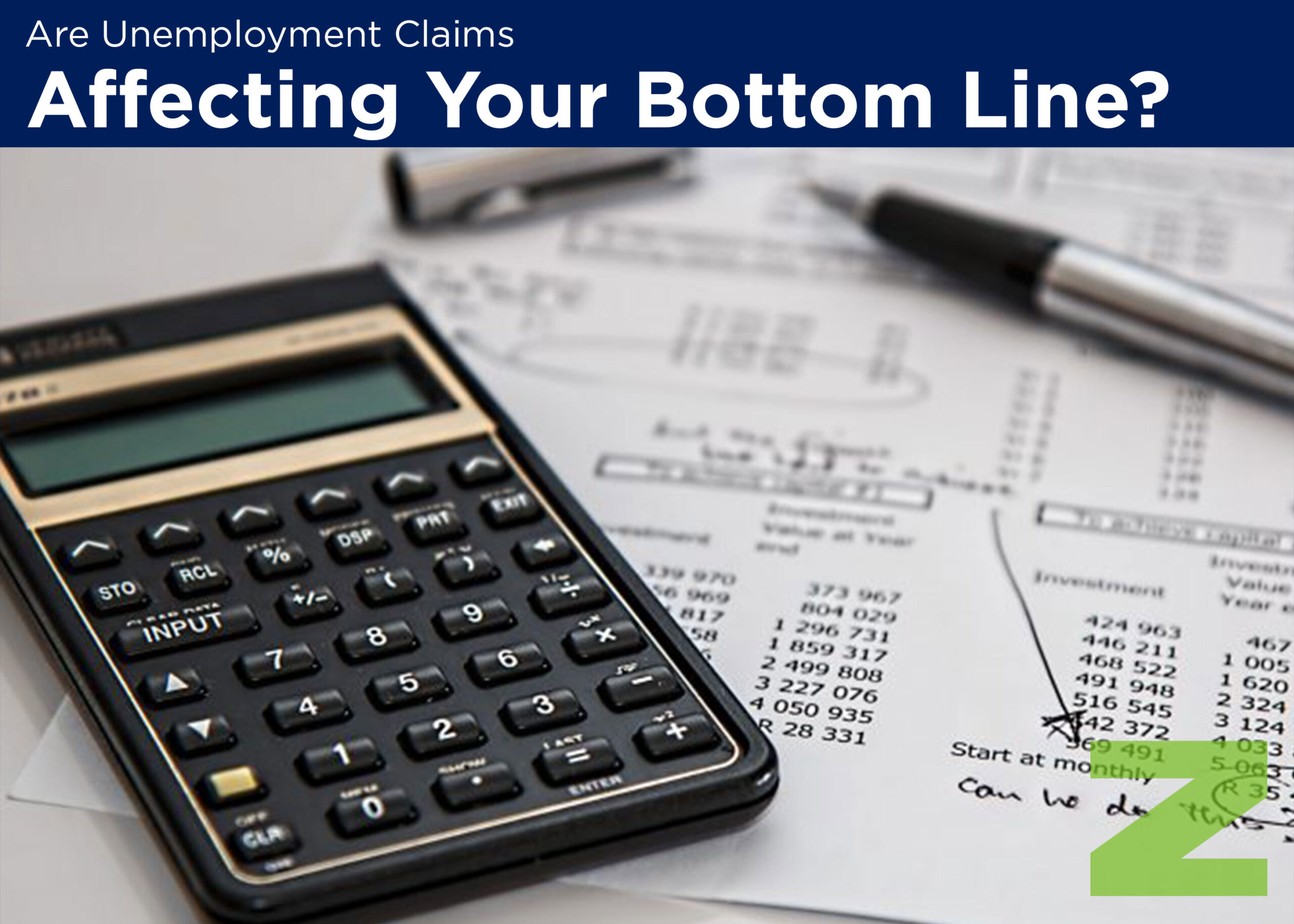(by Nancy Owen, PHR)
Every unemployment claim that gets paid out to your former employees has the potential to raise your unemployment insurance tax rate over the course of several years following that claim. The better you understand the process, the better your chances of minimizing the inevitable costs that follow any separation from employment, whether voluntary or involuntary.
What is UI? Unemployment insurance was created to provide limited compensation for employees who have lost their jobs through no fault of their own. It is funded almost exclusively by employers.
The Federal Unemployment Tax Act (FUTA) together with state unemployment laws imposes taxes on employers to fund unemployment compensation. Most employers pay both a federal and a state unemployment tax. The employer is responsible for paying this federal unemployment tax; however, a few states do assess unemployment taxes on employees, as well.
The amount any employer is taxed depends on the taxable earnings of your employees and the history of unemployment claims against the company. Each claim assessed to your account can result in future tax rate hikes for your company that can impact the company for years to come.
What qualifies as “good cause” to leave a job? Many people are under the impression that when an employee quits their job they are no longer entitled to unemployment benefits, but that is not always the case. Even employees who quit their jobs may be eligible to collect unemployment if they left with “good cause”. Each state varies as to how they define “good cause”. Generally, an employee has good cause for quitting their job if the employee is experiencing problems within the workplace which leaves him/her with no other option than to leave their job. This is known as “constructive discharge”. Here are a few examples of situations that may amount to constructive discharge:
- Harassment or Discrimination
- Lack of pay for work completed
- An unsafe workplace or conditions of work that the employer refuses to correct
- A significant change in the job and its duties
There are other good cause reasons that may have nothing to do with hazards in the workplace. Even though the employee may have violated your attendance policy, for example, if the situation for leaving the job is beyond an employee’s control, the employee may be eligible for unemployment benefits. Here are some examples:
- Relocation due to a spouse’s employment.
- Leaving the job due to a medical condition that the job may aggravate.
- Leaving the job to care for a seriously ill family member.
- Leaving the job to relocate for reasons relating to domestic violence.
Sometimes a current employee may be eligible for unemployment compensation while working. Some states will award partial unemployment benefits for a worker whose hours have been cut from full-time to part-time. However, if the employee voluntarily chooses to cut back on hours or work part-time, they would not be eligible for partial unemployment benefits.
What can you do to reduce the impact of unemployment claims on your business’ bottom line? Here are some best practices that reduce the likelihood of a successful unemployment claim against your company:
- Hire carefully! Train your hiring managers how to select the best candidate. That starts with careful screening, including proper interview techniques. If you have hired the right people, you are less likely to lose them.
- Train your employees. The better they know their jobs, the more likely they are to succeed.
- Clearly communicate expectations. Every employer should have a good employee handbook with a clear attendance policy, code of conduct, safety rules, etc. Every employee should be given a copy of the employee handbook (or have access to it) and sign an acknowledgement of receipt. Be sure to give them opportunity to ask questions about any policy they don’t understand.
- Listen to your employees. You should have a clear policy for reporting of harassment, discrimination, unsafe work conditions, the need for an accommodation, and any other serious issues an employee may have in the workplace. Your supervisors should be trained on how to properly assess and address all employee complaints and concerns.
- Discipline when needed. If your employee is not following your policies, talk to them about it! Never let unacceptable conduct go unaddressed. And DOCUMENT, DOCUMENT, DOCUMENT. If you have evidence to show that your employee knew of a policy (handbook acknowledgement), but still chose not to follow it (note to their file of counsel or warnings), that documentation will give you a better chance of winning an unemployment claim.
- Request a signed letter of voluntary separation from the employee who chooses to leave the organization. If one is not given, document the details of the resignation and file it in the ex-employee’s personnel file.
Contesting or appealing an unemployment claim: It is important to always respond to unemployment claims and to be sure you provide all the facts that surround the termination of employment when you receive a Claimant’s Separation Statement from the Employment Security Commission. It is also very valuable for you to contest or appeal unemployment claims when the employee left your company through a fault of their own, because every unemployment benefit claim paid out to former employees affects your tax rate. As previously mentioned, your rate is based in part on the number of claims made against you by former employees.
Another benefit of contesting or appealing a claim is that, if you win the unemployment hearing, the employee is less likely to try to sue you for wrongful termination, and, if they do sue, is less likely to win.
Remember: Take unemployment claims seriously. You don’t want it to come down to your word versus the employee’s word. That well-written employee handbook, which includes a signed acknowledgement form, will be a great advantage for you. You can increase your chances of successfully contesting and winning unemployment claims by keeping good records of all disciplinary actions so that you can prove the validity of your defense. You can help control your unemployment insurance rates by taking these steps now.
If you are an employer that would like help creating an employee handbook, improving your disciplinary procedures, implementing better record keeping, or any other employment issue, please contact our HR professionals by calling us at 1 (800) 224-7951.
#zorninishgt





